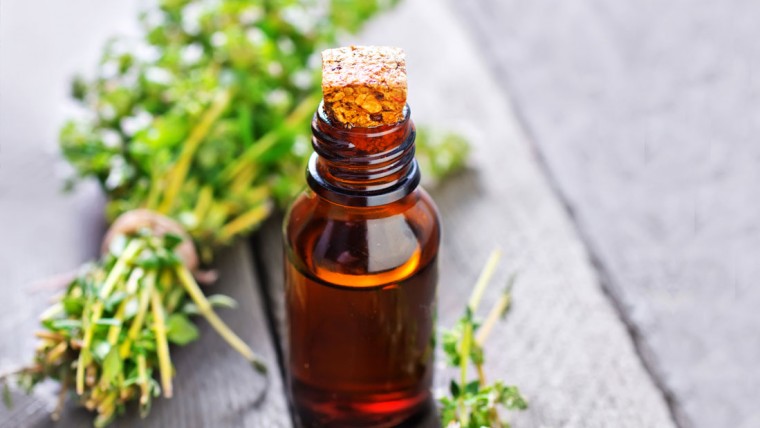
Derived from Thymus vulgaris, a member of the mint family, thyme oil is used in elixirs, cooking, aromatherapy, and potpourri. It is also used in medical ointments due to its medicinal properties. The benefits of this oil do not end here. It is even deployed in agricultural practices to protect the agricultural yield and retain the nutritional value of the crops grown. Thyme oil presents an inexpensive and a greener alternative way to protect the yield by keeping the insects away.
How is Thyme Essential Oil Prepared?
The essential oil of thyme is made by steam distillation of partially dried or freshly plucked leaves and flowers of the plant Thymus vulgaris. It results in a brown-orange colored essential oil, which has a strong aromatic scent. The chemical composition of the thyme oil depends on the type of thyme used in the oil production.
Uses of Thyme Oil
The oil spray is a fungicide, bactericide, and insecticide, which is prepared using thyme essential oil. It is a no-chemical alternative to commercial fungicide and is very useful for regular application and with other crops on rotation. The thyme spray is very popular in places like Florida, South America, and North Carolina. Thyme Oil has been effective on cucurbits, spinach, citrus, and tomatoes, to name a few.
Biodegradable, the thyme oil spray can be used exclusively or in rotation with other insecticides on the crops in the field. This non-toxic fungicide/herbicide is nonpolluting to the soil and environmentally-safe. It is better to switch to an organic approach to controlling pests as the toxic pesticides pose health hazards like swelling, breathing difficulties, dizziness, and nausea.
You can contact us if you are looking for essential oils like thyme, clove and tea tree which are deployed in agricultural fields. We, here at HBNO provide you with pure essential oils that are hygienically packed to perfection, available at the economical price range.

